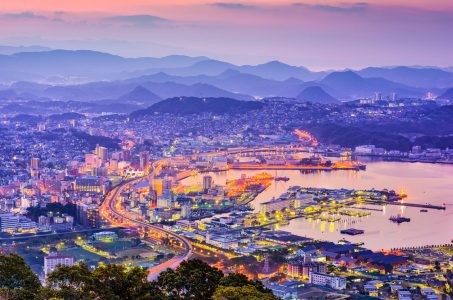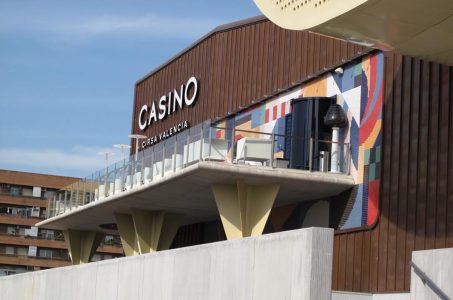Macau Unemployment Reaches Highest Rate in Eight Years
Posted on: April 28, 2020, 02:38h.
Last updated on: April 29, 2020, 06:51h.
The number of jobless workers in Macau during the start of 2020 reached an eight-year high, given economic pressures from the coronavirus pandemic.

General unemployment in the Chinese gaming enclave edged up by 0.4 percent year-versus-year to 2.1 percent for the early quarter, Macau News, a local news publication, reported.
General unemployment is defined by Macau officials as the unemployment rate experienced by local employees and non-resident workers, the news report adds. Altogether, there were 8,500 unemployed people in Macau.
More specifically, the local unemployment rate for the start of 2020 increased by 0.6 percent to 2.9 percent, the report said. Since January, tourism, hotels, gaming, transport, storage, retail, restaurants, and other sectors in Macau’s economy were hurt by the pandemic.
Macau saw 191,377 non-resident workers during early 2020. Most were from the Chinese mainland (116,500), the Philippines (34,180), and Vietnam (14,793), according to the Labor Affairs Bureau, Macau News said.
Macau’s 2.1 percent general unemployment rate represents the first time the rate was above 2 percent since between April and June 2012, according to the government’s Statistics and Census Bureau, Macau News said.
In contrast, last May unemployment between February and April fell 0.2 percent to 1.7 percent in Macau. That means just 6,600 locals were out of work and looking for a job a year ago.
During the start of 2020, Macau saw 405,800 people employed. That is about 70.5 percent working in the labor force, Macau News added.
Earlier this year, some residents in Zhuhai, in the adjacent Guangdong Province, relocated to Macau before coronavirus restrictions were enforced in February.
Macau Unemployment Rate Not a Surprise
When asked for comment on the unemployment rate in Macau, the Rev. Richard McGowan, a finance professor at Boston College who closely follows the gaming sector, said the new jobless rate is “not at all” a surprise. “The Macau casinos were the earliest ones closed due to coronavirus,” he said.
They lost 100 percent of the mainland business, and who would want to fly into China to gamble,” McGowan told Casino.org. He adds it will take “a long time” for the unemployment rate to improve, given visitors and players need to “feel comfortable” before they travel to Macau and are “close to one another.”
In addition, Macau’s gaming properties need to set up a social distancing policy. That will mean there will be fewer players and “clearly less table games,” McGowan said.
Also, he does not expect Macau’s economy will diversify any time soon. “Macau was established as the ‘sin’ capital of China,” McGowan said.
“It is an island off the Chinese coast,” McGowan added. “So, there are not many ways it could diversify.”
Macau’s economic experiences with the pandemic provide lessons for Massachusetts or elsewhere in the US, McGowan confirmed.
“It will take a long time before patrons feel comfortable to gamble in a casino,” McGowan explained. “Also, the setup of the casino will have to change drastically.”
“Slot machines will need to be further apart, table games will need to separate patrons, so there will have to be less patrons,” he added. “Less money for the state in taxes as well.”
David G. Schwartz, a gambling historian who is now an academic administrator at UNLV, is also not surprised by Macau’s unemployment rate.
“The pandemic led to a closure and a major disruption of travel,” Schwartz told Casino.org. “So, it is not surprising that casinos are not able to maintain high staffing levels, even when opened.”
He presumes Macau casinos will “staff up as business improves.” That is dependent on the larger recovery from the pandemic and people getting back to work, he adds.
Reopening Casinos Just the Start
“I think it demonstrates that just because casinos are allowed to open, business will not necessarily return immediately to pre-outbreak levels,” Schwartz observed about wider trends. “There is a lot we don’t know right nowl Gut it seems that the recovery from the economic dislocations caused by the pandemic will take some time.”
In March, Macau’s gross gaming revenue (GGR) saw an 80 percent decline year versus year. GGR could be worse in April, JP Morgan Securities (Asia Pacific) Ltd has projected.
Related News Articles
Las Vegas Sands, Wynn Surge as Macau Ends China Travel Quarantine Policy
Stanley Ho Family Bicker After Late Casino Mogul Didn’t Leave Will
Nagasaki Changing IR Design to Make It More Appealing
Blackstone Eyeing Another IPO Try of Spanish Gaming Operator Cirsa
Most Popular
Las Vegas Overstated F1 Race’s Vegas Impact — Report
Mega Millions Reportedly Mulling Substantial Ticket Price Increase
Las Vegas Strip Stabbing Near The Strat Leaves One Man Dead
LOST VEGAS: ‘Tony The Ant’ Spilotro’s Circus Circus Gift Shop
Most Commented
-
End of the Line for Las Vegas Monorail
— April 5, 2024 — 90 Comments -
Mega Millions Reportedly Mulling Substantial Ticket Price Increase
— April 16, 2024 — 6 Comments -
Long Island Casino Opponents Love New York Licensing Delays
— March 27, 2024 — 5 Comments -
Sinclair Broadcast Group Selling 7.91 Million Bally’s Shares
— April 12, 2024 — 4 Comments
















No comments yet